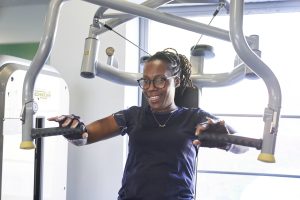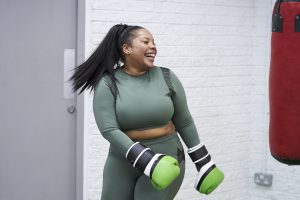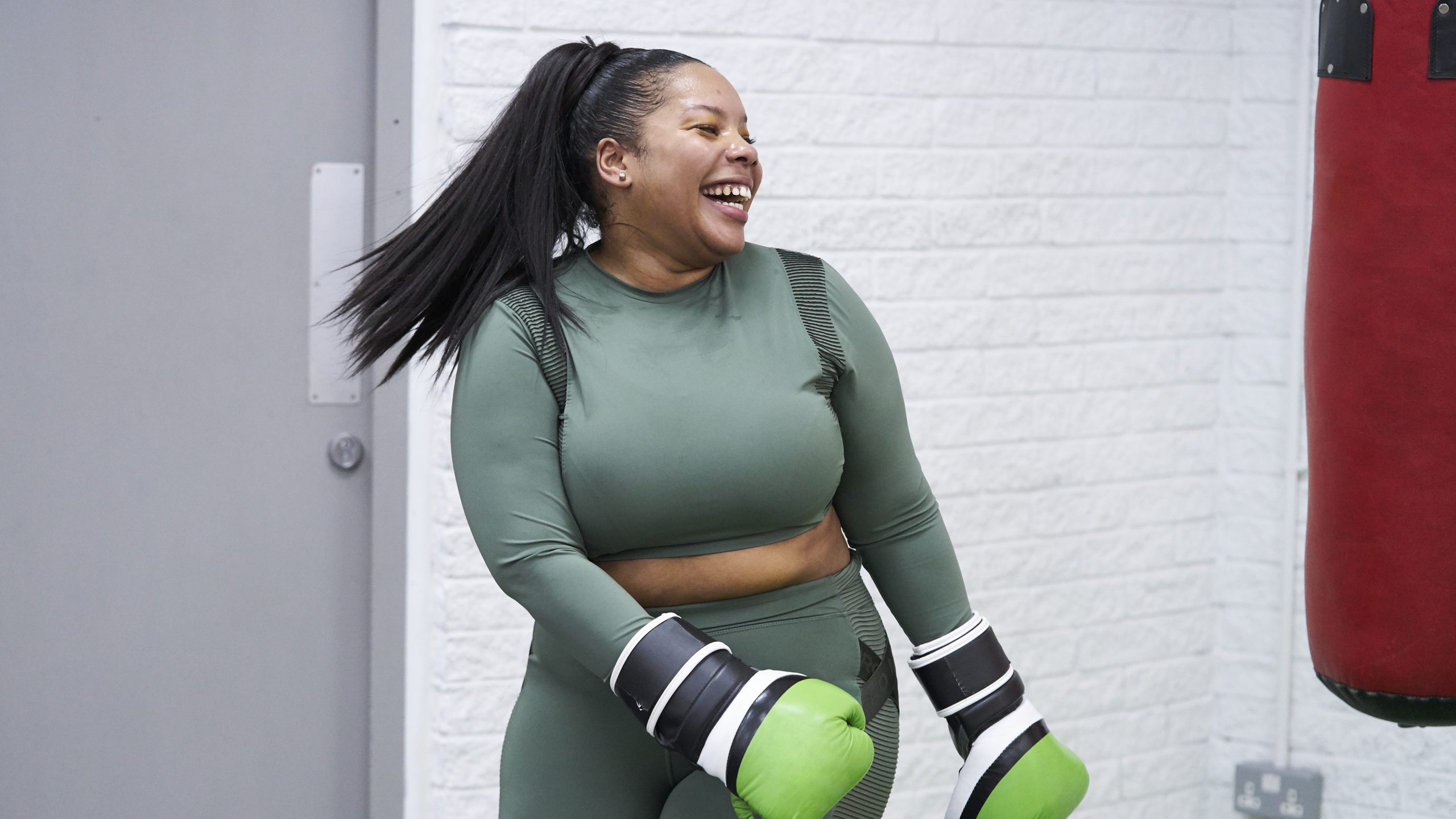“At first I thought I had to be more like a man.”
I’m sure many of us feel that weight of responsibility to play our part in changing the gender imbalance. But we pick our battles and choose what to let go of because, at the end of the day, we’ve got to make work, work.
Our women of colour felt this too, but they also had the additional weight of racial inequality too. They might be thinking about the implications that culture and class have on life at work and in sport, too. This combination creates a strong focus on legacy. And this became the driving force in their approach to leadership. They had clear ideas on the change they wanted to effect and deliberately thought about developing their approach to make that happen. This may have not imagined they would be a leader in sports, but they most definitely had thought deeply about the change they wanted to see.

“We’re changing the world, a bit at a time. I wanted to take the sport to places it’s never been, to places it doesn’t normally live.”
“I knew what kind of culture I wanted to create, I had the vision, I knew what values I wanted to instil in others.”
“There was a definite moment when I decided to stop trying to be like my male predecessor and show up as me. Trying to play the role ‘like a man’ – strong, powerful, not showing vulnerability – felt really inauthentic.”
It has been beautiful to see these women standing in their full power and bringing all aspects of their background to their leadership style. It’s hard to disentangle gender from class, race and culture because each is just part of who they are. But the idea of having more diversity in leaders, who feel empowered to bring everything they have to the role, feels so important to nurture and champion. To be able to observe different approaches to how we deal with conflict, how we collaborate, how we create change, how to nurture talent, how we give feedback, how we tackle the tough stuff – is nourishing to all of us.
“I feel very proud of my working-class background. It’s important to me that I am relatable to others and for them to see me and feel inspired by it. To think, ‘I can be that too’.”
“I had a great mentor in my first [non-sports] job that helped me understand what it means to feel like an empowered woman, able to stand in her power.”
Because of their confidence to be authentic, coupled with their agenda for change, I observed some powerful impacts of their leadership in their workplaces and in the sport. It feels like a modern leadership masterclass we can all learn from:
- Courage to call out the blind spots keeping systemic racism alive
- Ability to talk about everyday racism in ways that create lasting behaviour change
- Never losing sight of who they are, what they stand for and the impact they want to have
- Always able to meet people where they are to bring them on the journey
- Deeply invested in creating cultures where everyone belongs
- Consistently leading from their core values encouraging principled behaviour in all

“Always being available for questions, communicating clearly, inviting key people to everything, being really transparent. It’s this that has created a sense of collaboration and has ensured everyone feels part of it.”
“I couldn’t believe so few athletes were of colour. I called it out and said, ‘how can it be?’ It’s not like only white middle class kids have disabilities, so I wanted us to get to the root cause of it. Now we have a proper strategy to address this.”
“I remember not feeling valued on the way up, and that had such a big impact on me. Celebration is a deliberate part of my leadership. I try and find celebratory moments and give my athletes a hug for their hard work and effort.”
“People love our energy, positivity, our inclusivity and our sense of community. To me this isn’t a job, this is a personal mission in the sport, and it shows.”
Perhaps being authentic is simpler when you’re the first. When there isn’t someone ‘who looks like me’ to follow in the footsteps of. That is a big responsibility to shoulder, though, and its weight should not be underestimated. These women show us that it takes courage and confidence to do it, and all women could benefit from being better supported to bring the fullness of their offering to leadership so that sports and its workplaces can grow as a result.
We certainly will not meaningfully change the dial on representation until we take active steps to invite all people, of all genders, to be more authentic in their leadership, and move away from outdated ideas of what ‘good’ needs to look like.
Women in Sport is committed to a working culture where everyone can be authentic and true to themselves. We strive to represent the full diversity of the communities we serve.
That’s why Women in Sport aspires to a culture of belonging for everyone, where diversity is valued for the richness it brings to all aspects of our work, to our quality of thought leadership and to our interactions with all people.
Letesia Gibson is the founder of New Ways consulting. If you haven’t done so yet, read Letesia’s last blog on the value of resilience of women of colour in sport here.


